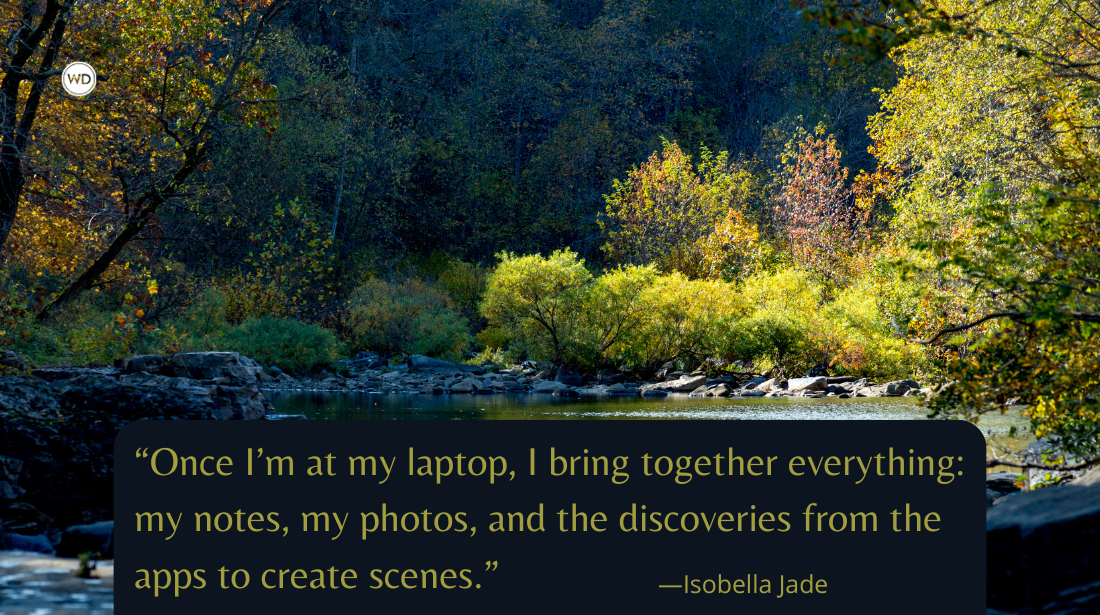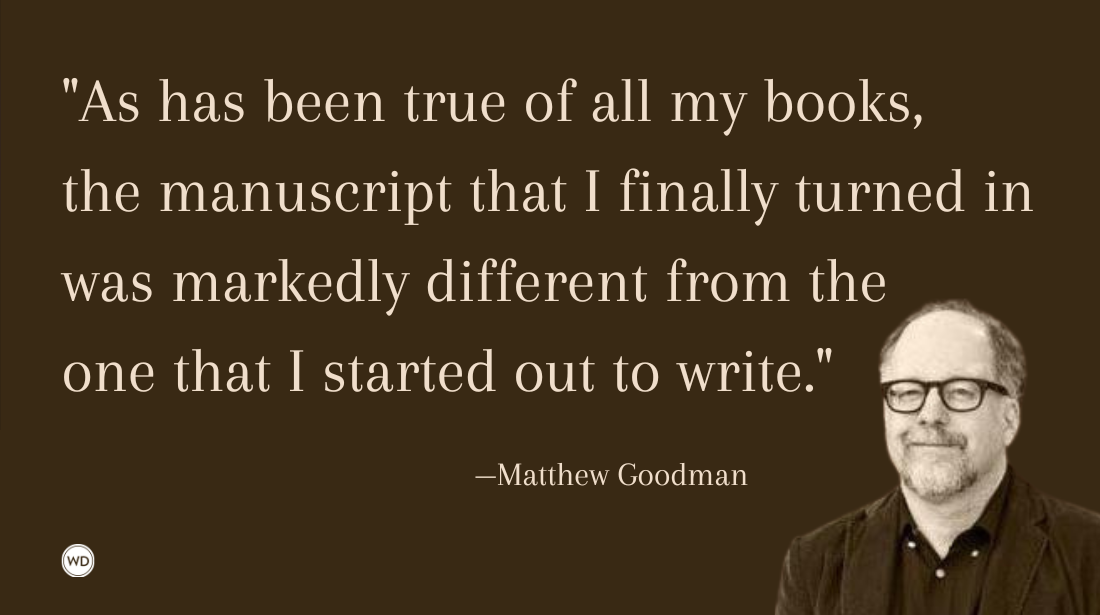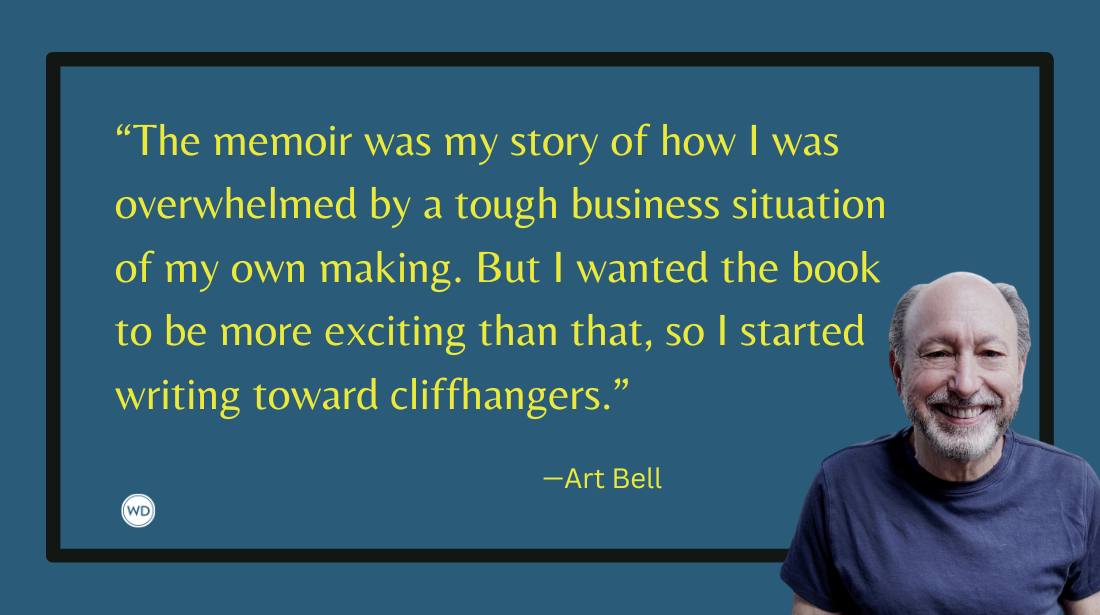Writing Advice From Nonfiction Writers
Nonfiction writers give us their techniques and advice for writing.
We asked several nonfiction writers two questions: "What is the one technique that makes your work stand out?" and "What is the best piece of writing advice you ever received?" Their answers follow. (For the answers to these questions from fiction writers from Elmore Leonard to Sandra Brown to Richard North Patterson, click here.)
Chip Rowe
assistant editor, Playboy; author, The Book of Zines: Readings From the Fringe (Owl Books)
The Technique: The way things have been shaping up lately in journalism, it might be enough to just say I don't make things up. I also make sure I get the facts right, even if that involves making an embarrassing phone call back to my source and looking a bit daft.
Michael Schumacher
There But for Fortune: The Life of Phil Ochs (Hyperion)
The Technique: I always felt I succeeded if my writing was, if you'll pardon the expression, reader-friendly. A writer should tell a story the way he or she might tell it to a friend, with the same passion. Think about it: You'd tell a friend a story in a certain logical way, including all the important details, and if you were skillful at it, the sense of urgency would come through in the telling. This is the first draft, the blueprint. In revising and rewriting the ordinary storyteller becomes a writer.
The Advice: I had one teacher who made all the difference. Sister Virginia Handrup taught high school journalism. She demanded that we be able to defend each and every word we put on paper—a practice I hold very dear to this day.
Jack Hart
managing editor, The Oregonian; columnist for Editor & Publishermagazine
The Technique: Organization. Like a lot of newspaper and magazine writers, I was taught to start writing as soon as I reached the keyboard, struggling with a lead and hoping the rest would fall into place. it's hard to unlearn that kind of training, but once I did, I started producing much better work. Now I begin by carefully sifting through my notes and other reference materials. I highlight and categorize as I go. Then I write a theme statement and a simple outline. Next, I produce a draft as quickly as I can. Finally, I go back and fine-tune.
The Advice: The first word to appear on my computer screen is always Theme. Following that, I produce a simple subject-transitive verb-object statement that spells out the core message of what I am about to write. It's the most useful writing tool I have.
Hank Nuwer
The Uneasy Alliance (University of Indiana Press)
The Technique: For me, it's mastering the art of paraphrasing information obtained from sources. Most writers feel too much allegiance to the words of sources, using direct quotes when they should be rephrasing those words in a clearly written context. Instead of using rambling quotations, good writers take the same info and create magic with the addition of background, irony, description and any of a hundred other devices.
Marya Hornbacher
Wasted (HarperCollins)
The Technique: I let dialogue carry the burden of the story; I try to let the characters tell each other what's happened or happening. it's important to give readers credit for having brains, so I'd rather let them follow the story themselves, rather than give them the preemptory Cliffs Notes. This is somewhat paradoxical, because my work, whether fiction or non, or poetry, isn't overly heavy on dialogue; it's just that dialogue is really important when it happens. The rest is just mood lighting.
The Advice: Jack Driscoll, the author of several novels, taught me countless things. Among them was this: Stick with what is essential to the piece, find the right image, the right language, then shut up, stand back and let the work speak for itself.
Jeff Zaslow
columnist, Chicago Sun-Times and USA Weekend
The Advice: R.L. Stine, who has sold 170 million Goosebumps books, told me he's upset that teachers, parents and writers always advise kids to "write from the heart." He said that's terrible advice: "I've never written anything from the heart. Nothing makes me more furious than writers who talk about heart. It makes kids worry, "Oh, no! This Isn't from my heart, I can't write it."
Jack D. Coombe
Gunfire Around the Gulf (Bantam)
The Technique: I always aim to make my historical nonfiction interesting to average readers, not just scholars. I visit the sites I'm writing about, imagine I'm a spectator there and then write from an eyewitness perspective.
The Advice: Years ago Frederick Manfred (the author of Lord Grizzly) crawled five miles across a barren stretch of the Dakotas, in order to duplicate the feat done by Hugh Glass in the 1860s. He told me this authenticity and realism was the secret to his success. These are elements I strive for in my books.
Pat H. Broeske
Down at the End of Lonely Street: The Life and Death of Elvis Presley (Dutton)
The Technique: Research is the key. Because I specialize in the entertainment industry, that research sometimes entails listening to music and watching films. When I sat down to write a book on Elvis Presley, I watched all 33 of his movies—including the ones that are all but unwatchable. I felt that to understand what happened to Elvis, I really had to look at what happened to his career. And those movies are undeniable proof of Hollywood's general disdain for his talents. They also represent a professional decline which contributed to his personal decline—and his downward spiral. I only occasionally use the Internet; not everything is available electronically. Remember, many terrific research materials are out of print, and are hard to find. You must work at locating information.
The Advice: I got some good advice when I worked for the Los Angeles Times. Sunday Calendar editor Irv Letofsky told me to relax, to give myself a little space from a story I was working on. He told me, "Go to a movie. Take a long bath. Read something just for fun."
Stephen Ambrose
Citizen Soldiers (Simon & Schuster)
The Technique: My #1 rule of writing is abandon chronology at your peril, because chronologically is the way it happened. This means, more specifically, never flash forward, never flash back.
The Advice: The best advice I ever received was from my mentor Dr. T. Harry Williams, who told me to let my characters speak for themselves, as they can almost always say it better than you can. In other words, quote liberally. I've done that in all my books.
And a Bit of Bonus Advice: Dr. William B. Hesseltine told me never to use the passive voice. It is almost impossible to write in English without using the passive voice, but it is a goal worth striving for always.
Abraham Lincoln was shot by John Wilkes Booth
in Ford's Theatre in Washington on April 14, 1865.
That's about as bad as a sentence can be.
On April 14, 1865, in Ford's Theatre, in Washington,
John Wilkes Booth shot and killed Abraham Lincoln.
That's considerably better.
Putting it another way, Don't write, "a law was passed." That makes it sound inevitable and avoids assigning blame to the SOBs who passed it. Write "Congress passed a law."








